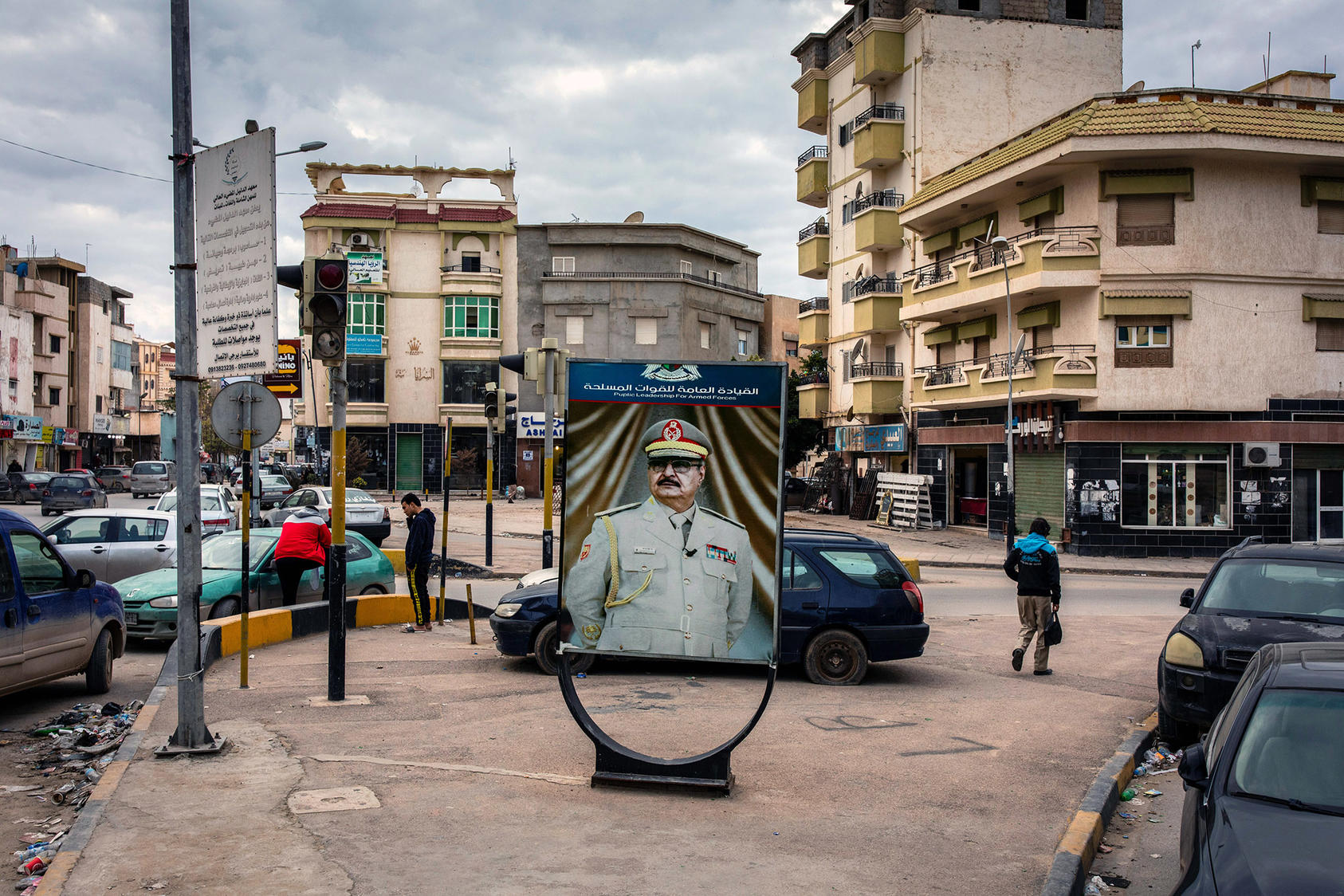One year after warlord Khalifa Haftar launched his assault on Tripoli, what are the prospects for peace in Libya?
For nearly nine years, Libyans have lived through war and political turmoil. The country has become a place for regional heavyweights and aspiring major powers to advance self-interests, often at the expense of the Libyan people. International attention and the recent peace conference in Berlin have focused on the role of external actors who violate U.N. arms embargoes, funnel money to militants, and incite violence through propaganda.

While important, this preoccupation with outside influence robs Libyans of their agency, casting them as pawns manipulated from abroad, and absolving them of any responsibility for their country’s future. A lasting peace in Libya is only possible once the Libyan people demand that their leaders reject foreign interference, commit to reconciliation, and represent the country’s complex diversity.
Since 2015, all significant peace negotiations have occurred outside Libya, under the direction of a foreign government. France, Italy, and the UAE have each hosted two high-level meetings. Additional high-level meetings have taken place in Cairo and Moscow. But these summits failed to achieve peace because the hosts are not neutral third parties but rather participants to the conflict. For four years, there has been a cycle where one foreign government hosts a peace conference, prompting a competing foreign government to host a parallel conference soon after. This pattern allows Libyan combatants to “shop” between conferences and participate only when the terms are favorable, and difficult concessions are not expected.
There is no question that the intervention of foreign governments has prolonged and escalated the conflict in Libya. The introduction of foreign fighters, private military contractors, and foreign regular military forces has influenced the conflict, but the overwhelming majority of the conflict’s combatants are Libyan. It is not surprising then that efforts like the Berlin conference, which did not include Libyan participants initially and was designed to reach an agreement between foreign governments, have failed to bring about lasting peace.
Unfortunately, when Libyans have been allowed at the negotiation table, political elites have negotiated without a mandate from the people and only a narrow set of interests are represented. One reason the peace agreement negotiated in Morocco in 2015 was never ratified and fully implemented was the perception that it was negotiated by political elites with little transparency or consultation with constituents. Since 2015, the Libyan people have been represented primarily by two parties in high-level negotiations: the Government of National Accord (GNA) which operates on an expired mandate and the warlord Khalifa Haftar. This binary does not reflect the diversity of the Libyan people.
Libya’ Unrepresented Diversity
Despite its relatively small population, Libya is a web of tribal and ethnic groups with very distinct political and economic histories. For more than 40 years under dictator Muammar Qaddafi, many Libyans experienced nothing but marginalization and disenfranchisement; now they want their voice to be heard and to determine their own future. The United Nations has tried to create opportunities for a cross-section of Libyans to engage, most notably a National Conference which was scheduled to take place in the Libyan city of Ghadames in 2019. This would have been the first opportunity for Libya’s tribal, ethnic, youth, and gender interests to be represented and considered but the conference was scuttled by Haftar’s decision to launch a military offensive to take control of the country—a move encouraged by Haftar’s foreign supporters.
In many parts of the country, Libyans are seizing the initiative to end conflict and promote reconciliation. With the support from the U.S. Institute of Peace, Libyan youth have created videos and social media content encouraging peacebuilding, successfully convincing some youth in the city of Misrata to quit the local militia. In the southern city of Ubari, Libyans are stepping up to mediate between tribes, prevent conflict, and create opportunities for shared economic growth. Libyans in the city of Sebha are working collectively to solve community problems like the indiscriminate use of celebratory gunfire.
The criticism of foreign governments’ interference in Libya is justified and must end; however, removing this foreign influence will not bring peace to Libya. Peace can only be achieved once the Libyan people decide to prioritize compromise and collective security. There are Libyans at the grassroots level advocating for reconciliation and nonviolence, but their work is often overshadowed by atrocities committed by a selfish minority, enabled by foreign governments. Their efforts should give others a reason to be optimistic.